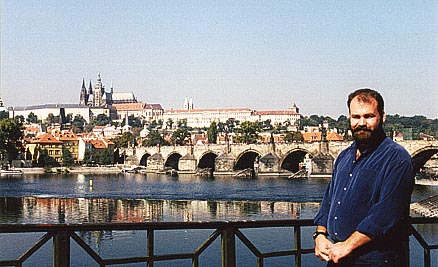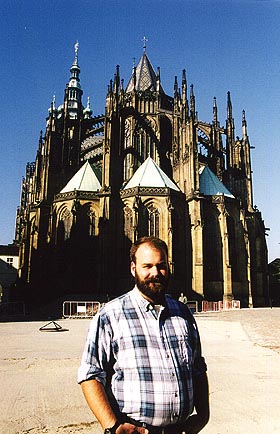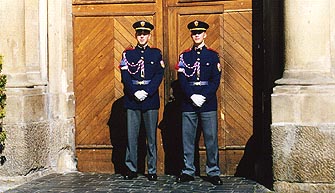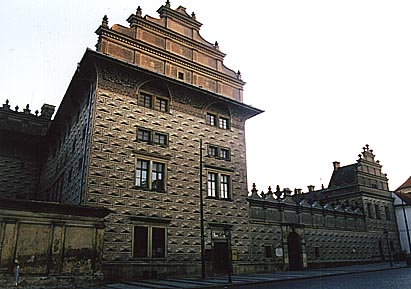|
Viewed from across the river, the castle gleams white. At night, it's wonderfully lit, and appears to float above the mists of the river. Much of the castle, while ancient, was restored in the early part of the 20th century. At the end of World War I, Czechoslovakia was founded out of the Austro-Hungarian Empire, and President Masaryk turned to Slovenian architect Joze Plecnik to restore Prague Castle as a fitting seat of government for the new republic. Most of what you see around the front courtyards of the castle are Plecnik's creation. His sensitivities are wonderful--rather than create a fairy tale castle, Plecnik chose to work in a dignified and moving style free of excess. Pick up a good architectural book on Prague when you're there--it's well worth it. |
|
|
|
|
Here, Chris stands at the back of St. Vitus Cathedral, which sits right in the middle of the castle. Now, after you've done the castle, church, and town square thang for awhile, you get pretty tired--"no, not another castle", "no, not another climb to the top of the bell tower". But St. Vitus cathedral was truly moving and fascinating. It's the final resting place of two saints, one of which has an elaborate silver tomb. It's also where the Czech kings are buried, in a small crypt under the main section. It's not easy to find the entrance--just go to the front of the church and pay the attendant, and you'll find it. The cathedral is still under construction, so to speak. From time to time, new areas are build, the most recent being a chapel in the early 1960's. |
|
|
I thought these castle guards were cute. Click to see a closer view. |
||
|
|
One of the many palaces up on the hill. |
|
|
|



